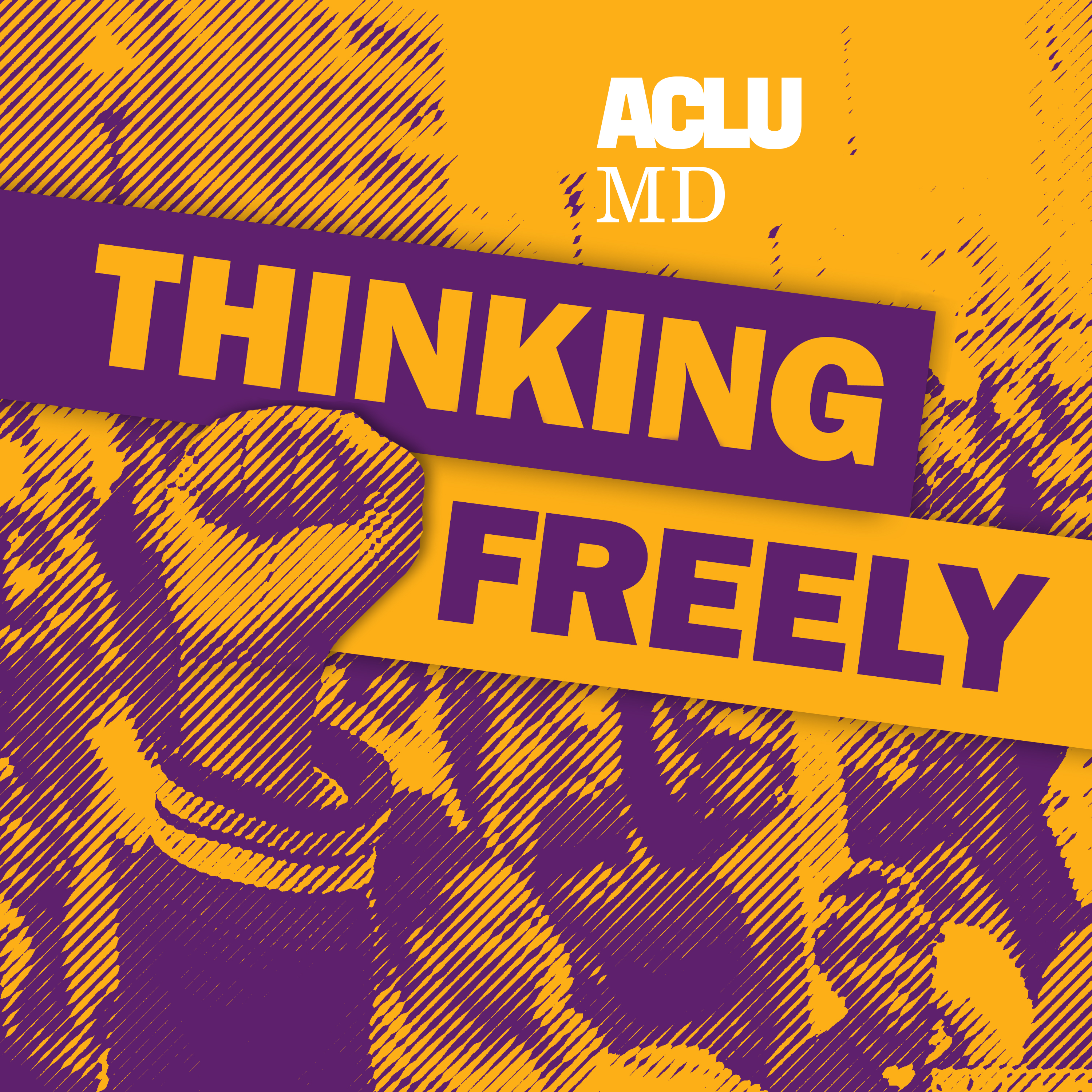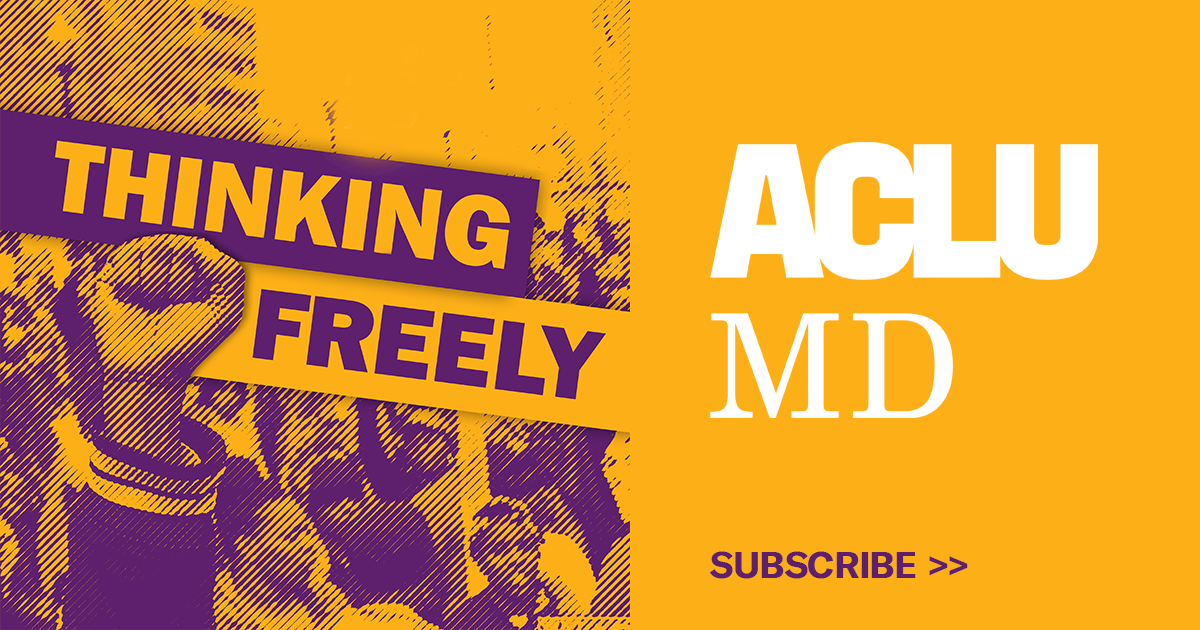The First Amendment was meant to serve as the backbone of our democracy, allowing people who are critical of the government the right to speak. Historically, white supremacists have co-opted the First Amendment to advance hate and incite violence. At the same time, we have seen People of Color’s First Amendment rights violated when they speak out against oppression and racism. The First Amendment is a vital tool that can be used to advance racial justice. That’s why survivors of police brutality and community members in Baltimore are fighting for the right to speak up against police abuse. However, the Baltimore City government requires survivors to sign “gag orders” that are meant to silence survivors of police abuse in order to resolve their cases.
In this episode listen to Tawanda Jones, activist, and leader of “West Wednesdays Coalition” and Deborah Jeon, legal director of ACLU of Maryland, discuss the impacts of silencing survivors of police abuse. We will also speak about the effort to re-imagine a First Amendment where everyone’s speech is protected.
Produced and Hosted by: Amber Taylor, digital communications strategist, ACLU of Maryland
Produced and Edited by: Nehemiah Bester, communications intern, ACLU of Maryland
This podcast was recorded on Piscataway land.
Thinking Freely, ACLU of Maryland's podcast, will inform Marylanders about what's happening politically – from the courts to the streets – so they can get involved and realize a more equitable Maryland for all.
SUBSCRIBE ON:
Apple Podcast | Spotify | SoundCloud | Stitcher | Listen Notes | RadioPublic | Pandora
Date
Friday, August 23, 2019 - 10:30am
Featured image
Show featured image
Hide banner image
Related issues
Free Speech
Police Practices
Show related content
Pinned related content
Victory in Free Speech Case Challenging Gag Orders Imposed on Survivors of Police Abuse in Baltimore
New Thinking Freely Podcast Episode “Let Baltimore Speak: The Fight Against Gag Orders” from the ACLU of Maryland
ACLU Files Two Lawsuits Challenging Gag Orders that Silence Victims of Police Abuse
Tweet Text
[node:title]
Type
Menu parent dynamic listing
Featured video (deprecated):
Show PDF in viewer on page
Style
Standard with sidebar
Show list numbers
For years, people sentenced as children to life in prison with the possibility of parole, and their families, have tried to get Maryland to live up to the promise of second chances that a parole-eligible sentence is intended to provide. However, many barriers exist that stop this from happening. Many criminal justice stakeholders have turned to technology to help make parole decisions through “risk assessment tools.” Also labeled artificial intelligence, these tools have been touted as carrying with them the potential to save a broken system. However, these tools may exacerbate the same problems they are supposed to help solve. They rely on flawed criminal justice data that is not controlled for the institutional vestiges of slavery, de jure and de facto segregation, racial discrimination, and biased policing.
In this episode we talk to Earl Young, who was sentenced to life when he was sixteen; James Foulds, assistant professor in the Department of Information Systems at UMBC; and Sonia Kumar, senior staff attorney at the ACLU of Maryland. What are the barriers to people getting a real opportunity to earn a second chance? What can you do to support meaningful reforms to parole systems, like the deeply flawed system in Maryland?
Produced and Hosted by: Amber Taylor, digital communications strategist, ACLU of Maryland
This podcast was recorded on Piscataway land.
Thinking Freely, ACLU of Maryland's podcast, will inform Marylanders about what's happening politically – from the courts to the streets – so they can get involved and realize a more equitable Maryland for all.
SUBSCRIBE ON:
Apple Podcast | Spotify | SoundCloud | Stitcher | Listen Notes | RadioPublic | Pandora
Date
Saturday, October 26, 2019 - 1:45pm
Featured image
Show featured image
Hide banner image
Related issues
Legal Justice System
Show related content
Tweet Text
[node:title]
Share Image
Type
Menu parent dynamic listing
Featured video (deprecated):
Show PDF in viewer on page
Style
Standard with sidebar
Show list numbers
Pages

